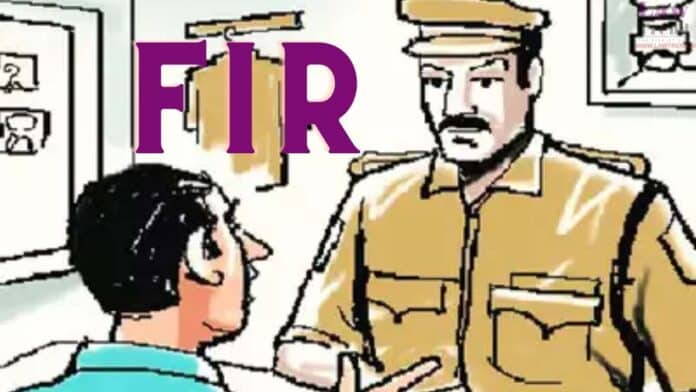There are various instances when an aggrieved person approaches the Police for lodging of FIR with respect to a crime committee against him/her or any other person or property. But it is equally true that it is not easy to get an FIR lodged. In this article we will tell you how to deal with this situation.
The information produced by either the aggrieved person himself or any other person concerned may be recorded in writing by the officer in charge (the Duty Officer), which the police is empowered to investigate under the Code (Cognizable Offence) is called ‘first information’ and the same shall be read over to the informant, who is to then fix his/her signature, which is to be then entered into a book/ diary to be kept and maintained by him every day by such officer in such format as the State government may prescribe therein this behalf.
This written information is called the “First Information Report (FIR)” and that after the police officer is allowed to investigate the matter.

Hon’ble Supreme Court in case titled as “Lallan Chaudhary v. State of Bihar” held that
“The mandate of section 154 is manifestly clear that if any information disclosing a cognizable offence laid before an officer has no other option but to register the case on the basis of such information”.
REMEDIES IF POLICE REFUSE TO REGISTER FIR
1) If Officer in charge (SHO)/ Police officer declines to file an FIR then the complainant/ aggrieved person can report it to the concerned higher authority/ Superintendent by submitting a complaint in writing and by post.
If further the Superintendent declines to take note of the complaint the next option available before the aggrieved is to file a criminal complaint before the Judicial Magistrate or the Metropolitan Magistrate under Section 156 (3) read with Section 190 0f CrPC.
2) Can approach to High Court by way of Writ Petition and ask for appropriate compensation.
3) Can lodge a formal complaint in the State Human Rights Commission, or the National Human Rights Commission.
4) File a complaint under Section 166A wherein if the public servant concerned failed to record any information given to him under subsection (1) 0f Section 154 of the Cr.P.C, 1973, in relation to cognizable Offences punishable under Section 326A, Section 326bB, Section 354, Section 354B, Section 370, Sction 370A, Section 376, Section 376A, Section 376B, Section 376C, Section 376D, Section 376E, or section 509 of the Indian Penal Code, the maximum punishment ranges from rigorous imprisonment for a period of 6 to 24 months in addition to cash penalty.
Written By
ADVOCATE Prem Joshi
Founder, Joshi Law Associates (JLA)
Practicing in Delhi High Court & District Courts







